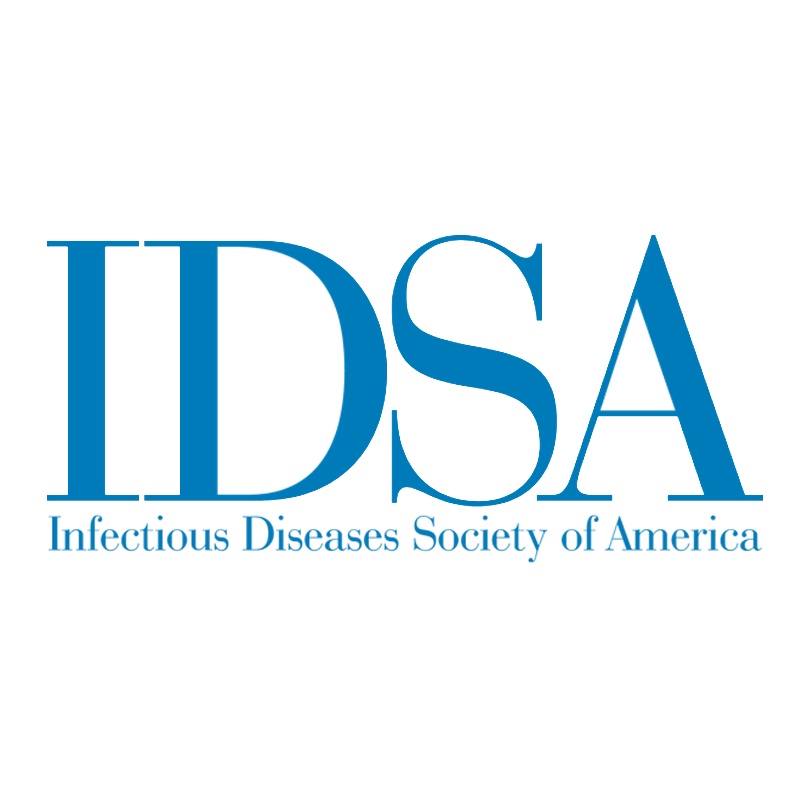IDSA is encouraged that the president's budget request for FY 2023 includes significant new investment in key infectious diseases priorities to keep our nation healthy. Notably, the budget includes significant increased funding to revitalize and sustain antimicrobial research and development. The budget also includes increased funding for CDC's Antibiotic Resistance Solutions Initiative, which invests in national infrastructure to prevent antimicrobial resistance, improve surveillance and promote stewardship, though IDSA recommends a larger investment in this critical program.
In addition, IDSA supports increased investment in several other ID-related health priorities including increasing immunization activities; preventing HIV, sexually transmitted infections and tuberculosis; and addressing the infectious diseases impacts of the opioid crisis.
IDSA is pleased to see the president's budget request includes $88.2 billion in new mandatory funding for pandemic preparedness efforts across agencies over five years, including efforts to combat antimicrobial resistance and strengthen global health security. Congressional support for this funding will be critical for better preparing our nation against future infectious disease threats.
The United States can make great strides in the nation's health with the resources provided in the president's budget, though additional investment above the president's request will be needed to fill remaining gaps in our global and domestic health security and to promote ID research.
IDSA calls on Congress and the Administration to work together to ensure a healthier world and nation safe from infectious diseases.
Infectious Diseases Funding Requests in the President's FY 2023 Budget
Proposed Mandatory Funding for Pandemic Preparedness
- $28 billion for CDC to enhance public health system infrastructure, domestic and global threat surveillance, public health workforce development, public health laboratory capacity and global health security;
- $12.1 billion to NIH for research and development of vaccines, diagnostics and therapeutics against high priority biological threats, including safe and secure laboratory capacity and clinical trial infrastructure;
- $1.6 billion for FDA to expand and modernize regulatory capacity, information technology and laboratory infrastructure to support the evaluation of medical countermeasures;
- $6.5 billion for the Department of State and the S. Agency for International Development, including:
- $4.5 billion for a U.S. contribution to a new financial intermediary fund focused on global health security and pandemic preparedness and response, including preparedness for future COVID variants. While this fund has yet to be established, the World Health Organization and World Bank are working on the design elements so that it can be ready to accept and deploy financing from the U.S. and other donors later in 2022;
- $500 million over five years for a U.S. contribution to the Coalition for Epidemic Preparedness Innovations to support vaccine research, development and delivery;
- $1 billion to build and strengthen the global health workforce;
- $500 million to replenish USAID's Emergency Reserve Fund.
Funding to Address Antimicrobial Resistance
- $197 million for CDC's Antibiotic Resistance Solutions Initiative, a $15 million increase over FY 2022 funding;
- $1 billion in mandatory funding at CDC for antimicrobial resistance as part of the broader pandemic preparedness funding described above;
- A proposal designed to combat antibiotic-resistant bacteria by encouraging the development of innovative antimicrobial drugs. This proposal would provide annual payments from a contract valued between $750 million and $3 billion to the developers of newly approved antimicrobial drugs.
Funding to Support Global Health and Preparedness
- $748 million in overall funding for CDC Global Health, a $101 million increase over FY 2022 funding; this includes $353 million for global health protection, a $100 million increase over FY 2022 funding;
- $95.801 million for the Fogarty International Center, a $9 million increase over FY 2022 funding;
- $2 billion for U.S. contribution to the Global Fund to Fight AIDS, TB and Malaria, a $440 million increase over FY 2022 and aligned with the Global Fund's ask for the seventh replenishment;
- $745 million for USAID global health security, a $45 million increase;
- $250 million in U.S. contribution to WHO's Access to COVID-19 Tools Accelerator (ACT-A).
Other Key ID Priorities
- $19.5 million for CDC's ID and Opioids Program, $1.5 million over FY 2022 funding;
- $1.470 billion for the HIV/AIDS/STI/TB Center at CDC, a $125 million increase over FY 2022 funding;
- $993 million for CDC's Immunization Program, a $343 million increase over FY 2022 funding.
However, more investments are needed to address global infectious diseases threats, expand infectious diseases surveillance, increase genomic sequencing of deadly pathogens, support infectious diseases research and strengthen efforts to expand and diversify the ID scientific workforce.
The president's budget includes flat and reduced funding levels:
- CDC global health programs, including a $2 million cut to immunization, a $500k cut to global HIV and a $500k cut to global TB;
- $6.268 billion for the National Institute of Allergy and Infectious Diseases, a $54 million cut in funding below the FY 2022 level;
- $21 million for CDC's National Healthcare Safety Network, level with FY 2022 funding;
- $4.37 billion for the President's Emergency Plan for AIDS Relief, a $20 million cut from FY 2022 enacted;
- $350 million for the USAID global tuberculosis program, a $21 million cut from FY 2022 enacted.
About IDSA
The Infectious Diseases Society of America (IDSA) is a community of over 12,000 physicians, scientists and public health experts who specialize in infectious diseases. Its purpose is to improve the health of individuals, communities and society by promoting excellence in patient care, education, research, public health and prevention relating to infectious diseases. Learn more at https://www.idsociety.org/.



Comments
Post a Comment